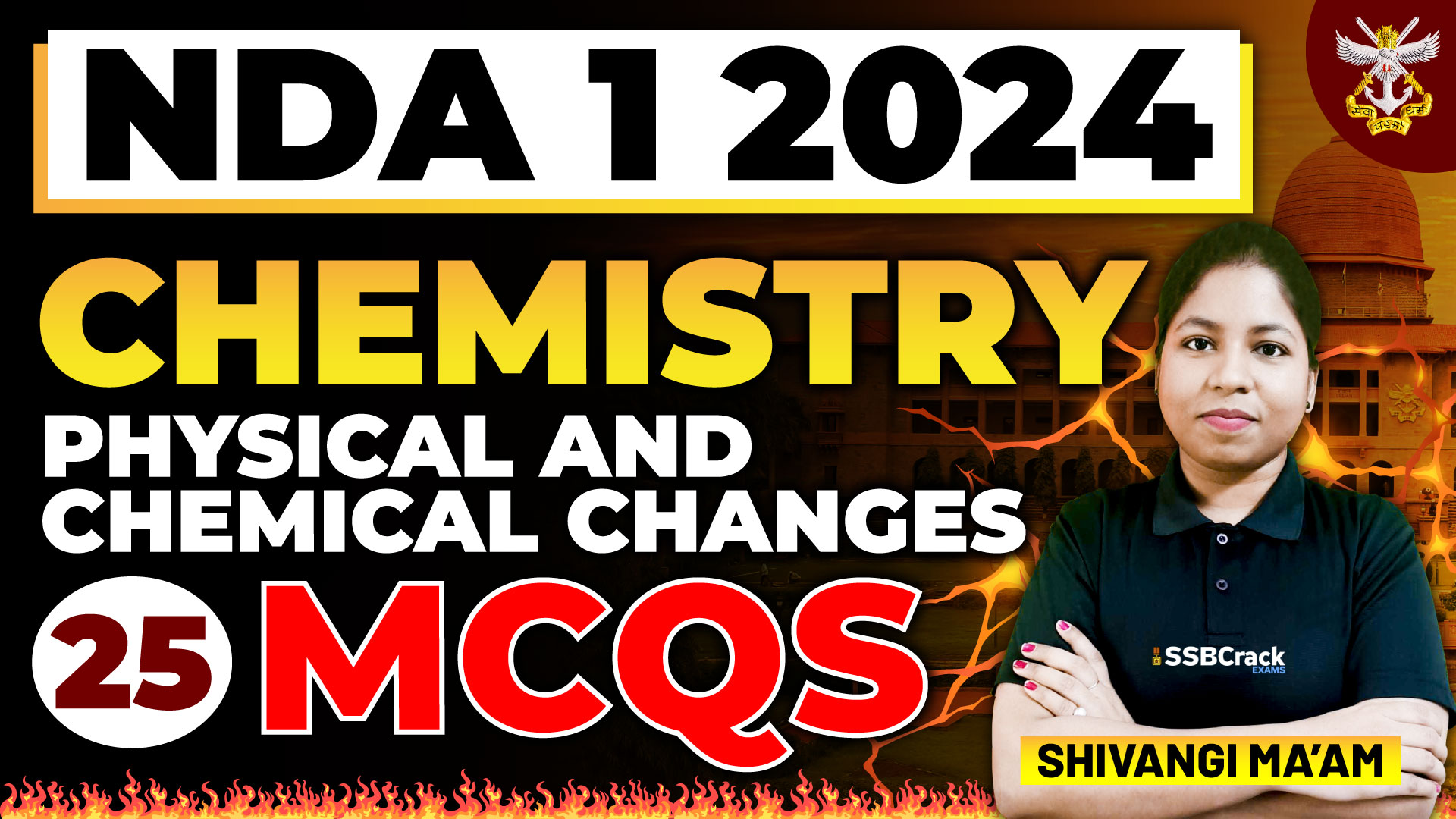The National Defence Academy (NDA) entrance examination is a crucial step for those aspiring to join the Indian Armed Forces. Among the subjects tested, Chemistry holds significant importance, particularly in assessing candidates’ understanding of physical and chemical changes. In the 2024 NDA 1 exam, the inclusion of Multiple Choice Questions (MCQs) focusing on physical and chemical changes underscores their pivotal role in evaluating candidates’ comprehension of foundational scientific concepts.
Understanding Physical and Chemical Changes: Before delving into the importance of MCQs, it’s essential to grasp the distinction between physical and chemical changes. Physical changes involve alterations in the state or appearance of matter without changing its chemical composition. Examples include melting, freezing, and dissolving. On the other hand, chemical changes result in the formation of new substances with distinct chemical properties. Common examples include combustion, rusting, and digestion.
Importance of MCQs:
- Conceptual Clarity: MCQs effectively gauge candidates’ conceptual clarity regarding physical and chemical changes. By presenting various scenarios and asking candidates to identify the type of change involved, MCQs prompt them to apply their understanding of fundamental chemical principles.
- Critical Thinking: Crafting MCQs requires careful consideration of possible misconceptions and the ability to discern between subtle nuances. As such, solving MCQs encourages candidates to think critically, analyze information, and make informed decisions – all crucial skills for military personnel.
- Efficient Evaluation: In a competitive examination like the NDA, where thousands of candidates participate, MCQs offer an efficient means of assessment. They enable rapid evaluation of a large volume of content, allowing examiners to assess candidates’ knowledge comprehensively within a limited timeframe.
- Application-Oriented Learning: MCQs often present real-world scenarios or applications of theoretical concepts. This approach encourages candidates to apply their knowledge to practical situations, fostering a deeper understanding of how chemistry concepts manifest in everyday life and military scenarios.
- Comprehensive Coverage: The inclusion of MCQs covering physical and chemical changes ensures a comprehensive evaluation of candidates’ knowledge. By encompassing a range of topics within this domain, the exam assesses candidates’ proficiency across various aspects of chemistry, thereby promoting a well-rounded understanding of the subject.
Conclusion: In the NDA 1 2024 examination, the incorporation of MCQs focusing on physical and chemical changes underscores their significance in assessing candidates’ knowledge and understanding of foundational chemistry concepts. By evaluating conceptual clarity, encouraging critical thinking, and promoting application-oriented learning, MCQs play a pivotal role in determining candidates’ preparedness for military service. Aspirants are encouraged to approach these questions with diligence, leveraging thorough revision, regular practice, and strategic problem-solving techniques to maximize their chances of success.
Physical And Chemical Changes MCQs
- The Process of Burning of a Candle Involves
A. only physical reactions
B. only chemical reactions
C. both physical and chemical reactions
D. More than one of the above
ANSWER: C - Which Of the Following Is an Exothermic Process?
A. Reaction of water with quick lime
B. Sublimation of Camphor
C. Evaporation of water
D. More than one of the above
ANSWER: A - Chemical Name of Washing Soda Is:
A. Sodium chloride
B. Sodium hydrogen carbonate
C. Sodium carbonate
D. Sodium hydroxide
ANSWER: C - How Many Water Molecules Are Present In One Molecule Of Washing Soda?
A. 8
B. 5
C. 7
D. 10
ANSWER: D - What Is the Common Name Of Mercury Sulphide?
A. Marsh Gas
B. Mohr’s Salt
C. Potash Alum
D. Vermilion
ANSWER: D
For More MCQs On This Topic Refer To the video & Attached PDF







